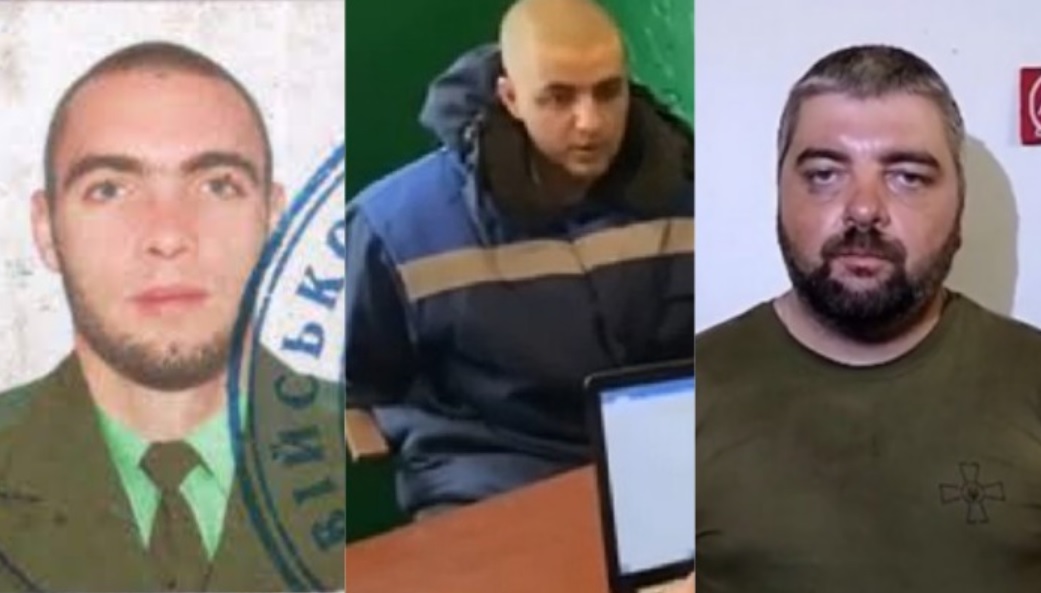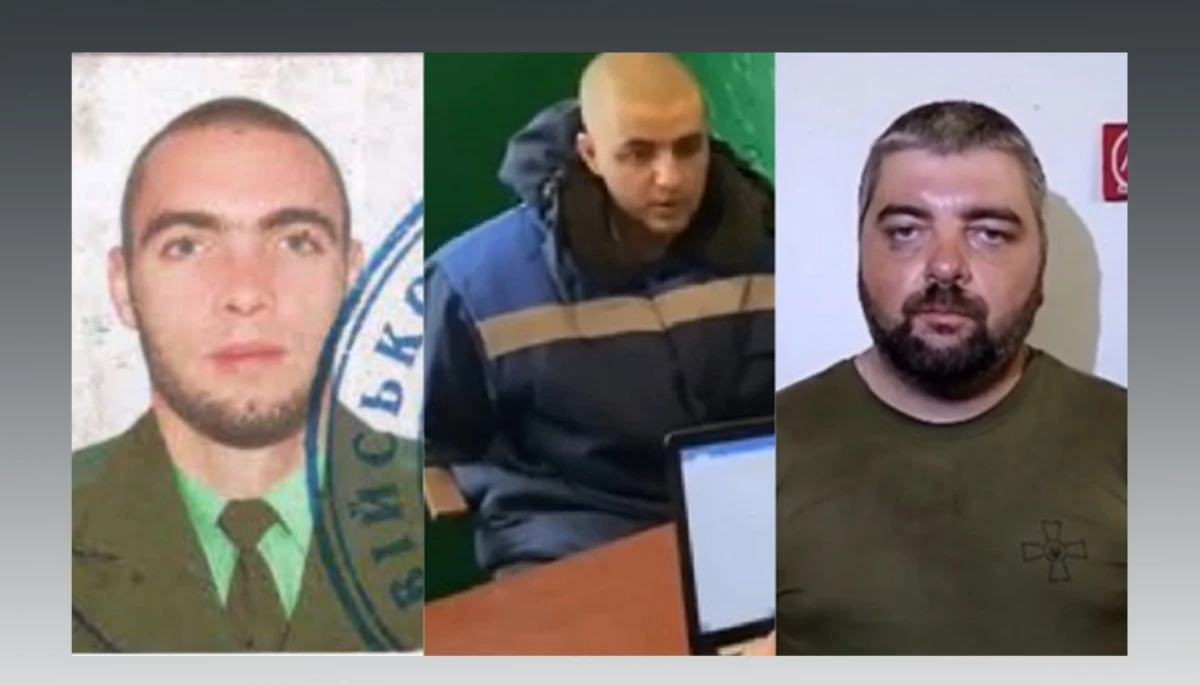Читайте українською тут.
On March 10, the official website of the Russian Federation’s Investigative Committee published details about the so-called conviction of three Ukrainian prisoners of war. As per the report, a quasi-court in the occupied Luhansk region “sentenced” Maksym Butkevych, a serviceman of the 210th Special Separate Battalion “Berlingo” of the Armed Forces of Ukraine, to 13 years in prison. In the Donetsk region, Vlaydslav Shel and Viktor Pohozei, who were captured while serving in the Azov Regiment, were “sentenced” to 18.5 and 8.5 years, respectively.
The “Ukraina.Pyata Ranku” (Ukraine. Five O’clock in the Morning) coalition asserts that these trials are intended for the Russian domestic audience and lack any legal validity based on the standards of justice. Instead, they serve as further evidence that the Russian government and its proxies in the occupied territories of Ukraine are guilty of committing war crimes against prisoners of war. These so-called “trials” of Ukrainian servicemen are conducted behind closed doors, in contravention of all possible standards of justice, and are presided over by quasi-entities that are not recognized by the international community.

Vladyslav Shel, Viktor Pohozei, and Maksym Butkevych
The Coalition’s organizations have been closely examining the quasi-legal systems established by Russia in the occupied territories of Ukraine, where the practice of convicting prisoners of war on dubious charges such as “sabotage,” “illegal seizure of power,” and “terrorism” has been prevalent since 2014. There have been several documented cases of “sentences” handed down by occupation courts, ranging from eight to 30 years in prison. Additionally, the occupied territories of Donetsk and Luhansk regions, which have been under the de-facto control of the Russian Federation since the occupation, have introduced the practice of imposing the death penalty.
The Russian Federation and its proxies have utilized Russian and former Soviet Union legislation as the basis for their “legislative” framework in the creation of their quasi-legal system. The “judicial” system of the quasi-republics, which has evolved over the past eight years of occupation from “field courts” to “district courts”, the so-called “military tribunal,” “supreme” and “appellate” courts, remains entirely subservient to the heads of the occupation administrations and functions as a part of the executive branch. The heads of the self-proclaimed “republics” have unfettered influence over the entire judicial system, thereby negating the principle of separation of powers, as well as the judicial system’s independence and autonomy.
In particular, the self-proclaimed “judicial” system fails to guarantee the proper administration of justice and fails to uphold fundamental principles such as justice, legality, and legal certainty. The recent sentencing of three Ukrainian prisoners of war further underscores this fact.
The Coalition stresses that the denial of prisoners of war’s right to a fair trial constitutes a war crime. This practice is also prohibited by the Convention for the Protection of Human Rights and Fundamental Freedoms, as well as generally accepted international standards for the investigation of criminal offenses.
Further evidence of the farcical nature of these “trials” is the substance of the charges leveled against Maksim Butkevich, a renowned human rights activist who adheres to the principles of human rights and international humanitarian law. It is apparent to anyone familiar with Maksim that his “confessions” of mistreating civilians, which were captured on video by Russian investigators, are altogether untrue and were made under duress and, very likely, physical coercion.
Rather than accepting these recent developments regarding the conviction of Ukrainian prisoners of war, the international community should redouble its efforts to pressure Russia into ensuring the humane treatment of prisoners of war, enhancing access to them and monitoring their conditions of detention by the International Committee of the Red Cross, and securing the release of all persons, both military and civilian, who are held by Russia and are citizens of Ukraine as quickly as possible.
Coalition “Ukraina.Pyata Ranku” (Ukraine. Five O’clock in the Morning)


